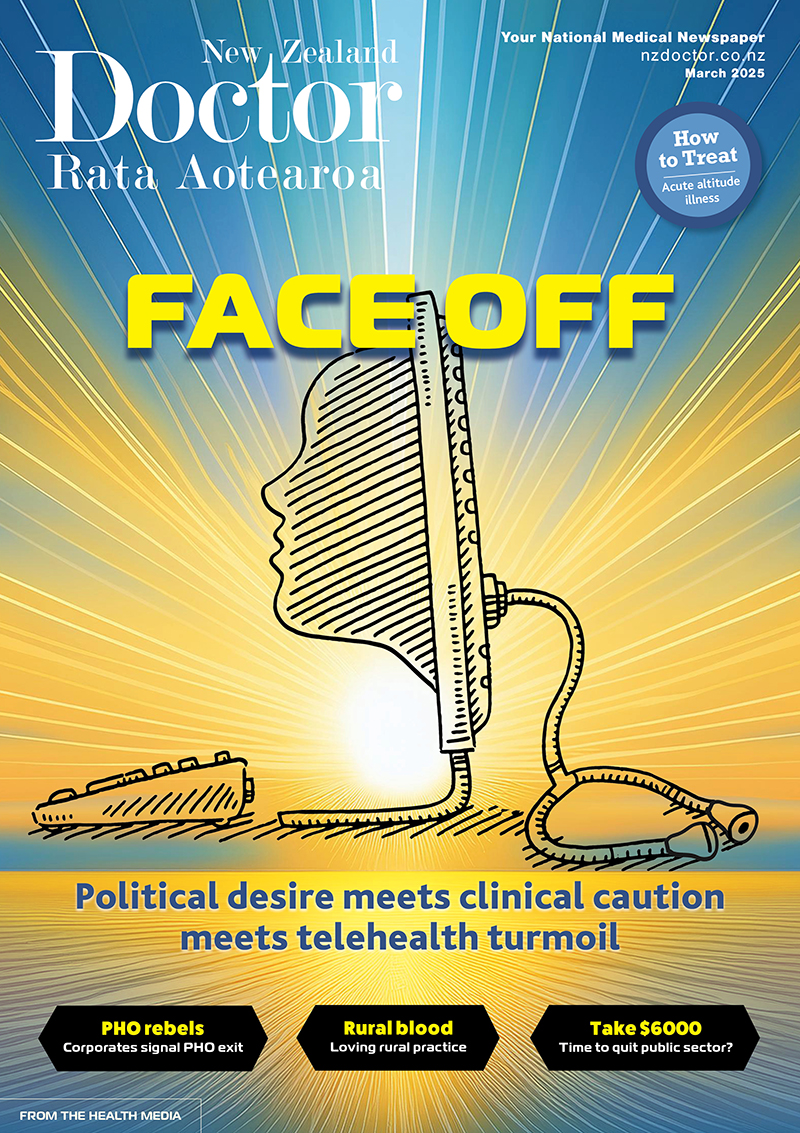Many people travel to high-altitude destinations, meaning clinicians are often faced with questions about how to prevent and treat altitude illness. Update your knowledge with this New Zealand Society of Travel Medicine summary of updated evidence-based guidelines with comments by senior lecturer Jenny Visser – it outlines the best prophylactic regimens, diagnostic approaches and treatment protocols for acute altitude illness
‘Epidemic’ of Fetal Alcohol Spectrum Disorder among Māori to come under spotlight
‘Epidemic’ of Fetal Alcohol Spectrum Disorder among Māori to come under spotlight

A University of Otago researcher has been awarded a grant to undertake vital research on Fetal Alcohol Spectrum Disorder (FASD) which she says disproportionately affects Māori in epidemic proportions.
Clinical Neuropsychologist Sarah Goldsbury (Ngāti Porou me Te Aitanga-a-Hauiti) has received a Clinical Research Training Fellowship worth $260,000 from the Health Research Council (HRC) to carry out research on Māori whānau experiences of neuropsychological assessment for FASD.
She is one of one of eight University of Otago researchers carrying out Māori-specific research, who have received an HRC career development award.
Ms Goldsbury is a working clinician based in Tairāwhiti/Gisborne but travels throughout the country to carry out the neuropsychological component of FASD assessments for children and youth in temporary and permanent care and Youth Court.
She says she sees some of the tamariki and rangatahi with the highest and most complex presentations, and sadly, too many are Māori.
“FASD is a complex disability that many do not understand well. There is a clear lack of systemic supports in Aotearoa to both identify and support those with FASD.
“I believe we have an epidemic of FASD in Aotearoa which is largely invisible to many professionals and whanau who do not recognise what they are seeing. And not only are we ignoring this, but we are inadvertently judging and punishing those who have FASD, and their whānau trying to support them on a daily basis.”
Those with FASD are at risk of issues such as seconday mental health problems, trouble with the law, inappropriate sexual behaviour, alcohol and drug use, and are some of the most vulnerable members of the community, Ms Goldsbury says.
The intentional dismantling of traditional Māori society has placed Māori at much greater risk for prenatal exposure and subsequent FASD – with recent research showing 80 per cent of children presenting to one assessment centre were Māori.
Her research will actively seek to integrate a Māori world view in a traditionally Western assessment process, with an aim to be representative and inclusive of whānau Māori.
Ms Goldsbury says as a solo parent she would never have been able to undertake the research, which will form her PhD, without the HRC grant.
“I would never be able to go back to university and complete a PhD while paying the mortgage and putting food on the table without the support of this fellowship from the HRC, and I am very, very grateful and appreciative for this,” she says.
She is grateful to have been gifted the privilege of being supervised by Otago Professor Suzanne Pitama as part of the university’s Māori/Indigenous Health Institute.
Fellow HRC grant recipient Jordon Lima (Ngāti Porou) has won both a PhD scholarship and a summer studentship - worth a combined $146,000 - which she says will allow her to study conditions such as Type 2 diabetes, heart disease, gout and obesity.
She says she has watched family and friends struggle with those diseases while not understanding why they are susceptible, and she hopes her research will contribute to identifying the underlying genetic causes to better educate and treat Māori and healthcare professionals about Māori-specific risks of disease.
More than $2.7 million has been awarded to the University of Otago to further work in areas ranging from diabetes and stroke, to mental health.
Deputy Vice-Chancellor (Research and Enterprise) Professor Richard Blaikie says the University is grateful for the funding, which will support the career development of “bright and ambitious researchers”.
“Not only will the research itself lead to important advances in healthcare and wellbeing, but the projects will allow many of the recipients to advance successfully to the next stage of their careers.”





